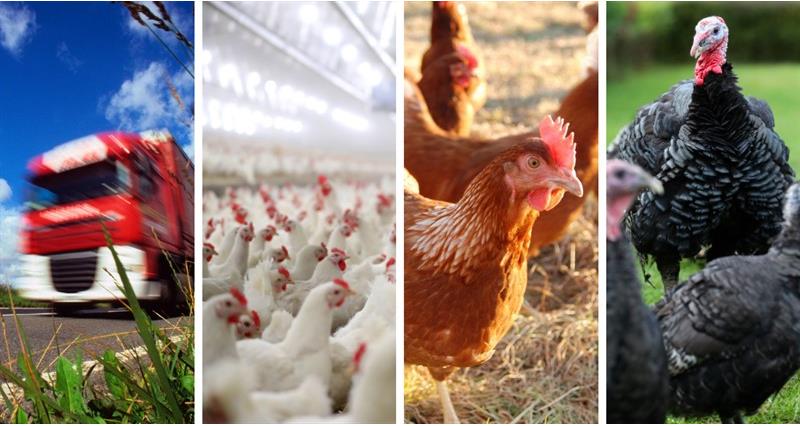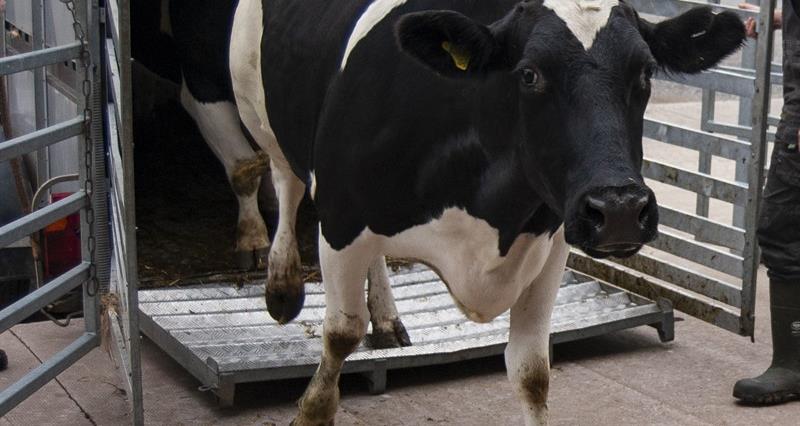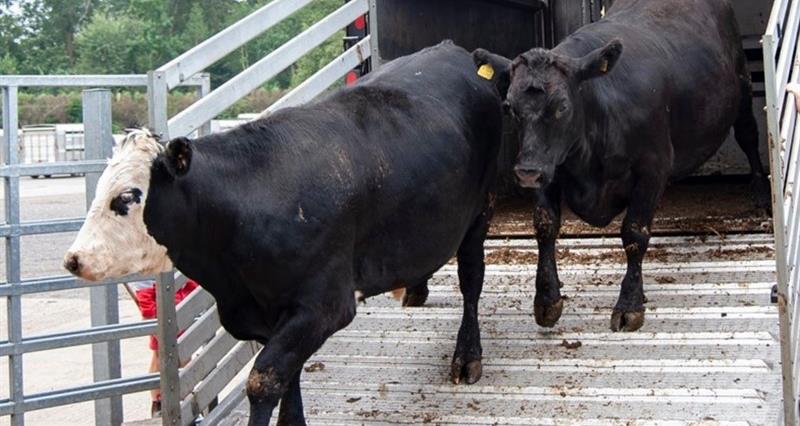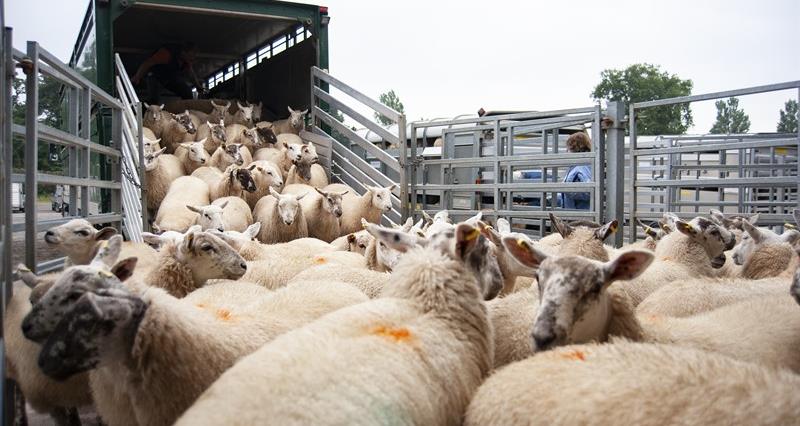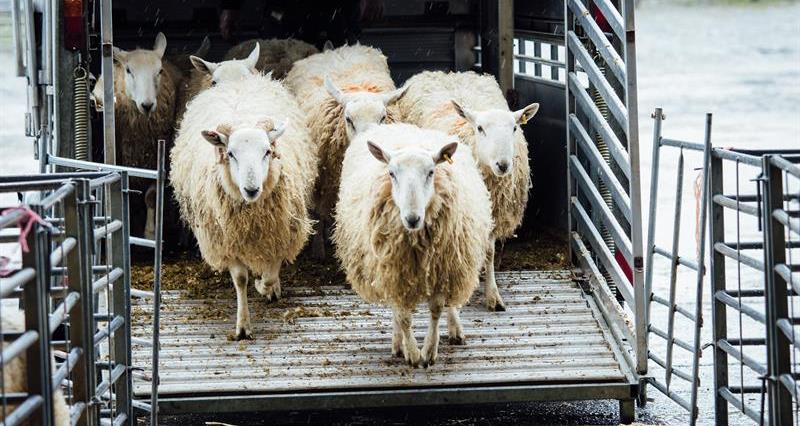In UK law, this means that before transporting, you must check the following:
- your animals, for physical conditions which could cause suffering;
- that the vehicle is in good working order and transport containers are not an injury risk;
- road and weather conditions will not delay your journey or cause suffering due to extremes of temperature.
Extreme weather
Recent government guidance, issued in summer of 2022, now clearly instructs transporters not to transport animals when external temperatures are more than 30°C, unless in temperature-controlled vehicles.
Where humidity is also high, the ‘feels like’ temperature on phone/web-based weather tools should be used as an indicator. This means that you should not transport animals above this temperature to avoid the potential suffering because of heat stress.
Whilst this temperature limit is not yet directly written in law, should poor welfare and suffering following transport be identified by a government officer (e.g. at a slaughterhouse), weather conditions and compliance with the guidance will be recorded as part of any non-compliance referral to the authorities.
Transporters who do not transport in accordance with the guidance, therefore have significant risk of potential referral for prosecution under Welfare in Transport Law.
NFU position
The NFU is still working closely with the wider industry and Defra to ensure proposals for reform to Welfare in Transport law are workable and proportionate to the welfare risk. Nonetheless, it recognises the risk of heat stress in poorly managed journeys during hot weather, and seeks to help members avoid the potential for suffering and risks of non-compliance.
Fitness to travel
By law, in cases of doubt regarding physical conditions and fitness, you must seek advice from your veterinary surgeon and consider alternatives including treatment or on-farm slaughter.
Check your birds before the catching team and the transportation driver arrives.
Supervise the work of the catching team in order to avoid any fitness-to-travel problems due to the handling and loading process.
Plan ahead for the journey and seek advice from your vet or haulier if you have concerns.
Download NFU welfare in transport posters:
- NFU fitness to travel poster - broilers
- NFU fitness to travel poster - turkeys
- NFU fitness to travel poster - laying hens
Correct handling procedures
Keepers and attendants (including the owners and managers) are ultimately responsible for the welfare of birds during catching and should be present to oversee the procedure. They should be on hand to supervise the work of the catching team in order to avoid any fitness-to-travel problems caused by catching or loading.
During catching, it is important to monitor bird fitness and act accordingly to prevent loading of birds that are not fit to travel.
Catchers should work in a calm and deliberate way, moving slowly, quietly and steadily through the flock and avoid making fast movements.
Noisy, rough or aggressive techniques can result in the birds panicking, which may lead to injury or smothering, particularly in confined spaces. Consideration to the environment in which the catching process is carried out is also important, for example the colour and brightness of lighting.
If birds become unfit to travel during the loading process (for example a bird’s limb is trapped between modules or crates) they should re-assessed for fitness to travel.
Any birds unfit to travel should be euthanised humanely by a trained person as soon as possible.
Signs of injury
To be fit for transport, birds should be free of leg issues, open wounds or other signs of injury. Birds with any of these symptoms are likely to experience additional pain or suffering during transport and should be humanely euthanised by a trained person.
- Leg issues – look out for birds that are experiencing difficulty walking, sitting with splayed legs or unable to stand and walk independently.
- Open wounds – check birds for signs of skin damage, sores, cuts or prolapsed vents.
- Signs of injury – look out for birds with damaged wings or keel bones and handle birds carefully to avoid injury during catching and loading.
Signs of disease or heat stress
Birds that show signs of disease should not be transported as they will be at greater risk of poor welfare during transport and may pose a biosecurity risk. Seek prompt veterinary advice if there are clinical signs of disease in a flock. Look out for birds displaying symptoms such as:
- a swollen head
- gasping
- coughing
- diarrhoea.
Birds that are not at peak physical fitness may also display signs of lethargy, weakness or fatigue. These birds should not be transported, and overall flock health should be monitored closely.
Farm managers and catchers should also check birds for signs of heat stress, as birds experiencing heat stress should not be transported.
The symptoms of heat stress include:
- lethargy
- panting
- birds holding their wings away from their bodies in an attempt to cool down.
Feather cover and body condition
The general condition of the birds is important as they must be fit for the intended journey. Birds with poor body condition may be too weak to be transported and are more likely to experience injury during transport.
Poor feather cover prevents birds from being able to regulate their internal temperature so they may be more susceptible to heat or cold stress during the journey.
Birds in good body condition that are fully feathered may also be subject to problems associated with temperature regulation if stocking rates are not carefully considered for the duration of the journey.
